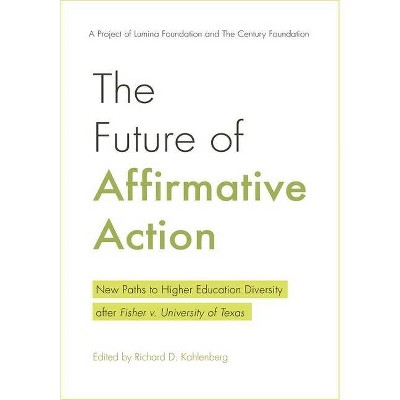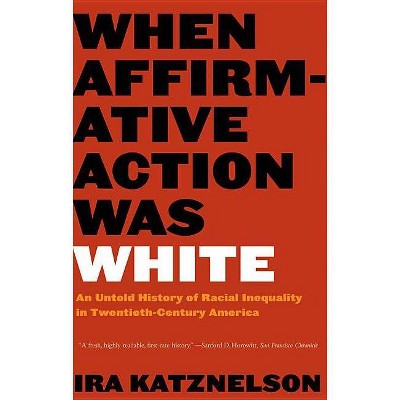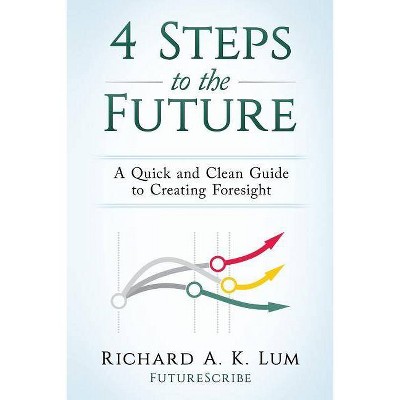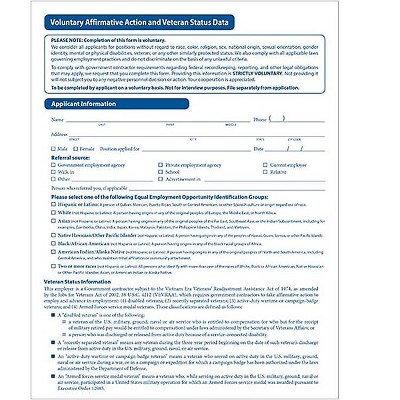The Future of Affirmative Action - by Richard D Kahlenberg (Paperback)

Similar Products
Products of same category from the store
AllProduct info
<p/><br></br><p><b> About the Book </b></p></br></br><p>As the United States experiences dramatic demographic change--and as our society's income inequality continues to rise--promoting racial, ethnic, and economic inclusion at selective colleges has become more important than ever. At the same time, however, many Americans--including several members of the U.S. Supreme Court--are uneasy with explicitly using race as a factor in college admissions. The Court's decision in <i>Fisher v. University of Texas</i> emphasized that universities can use race in admissions only when necessary, and that universities bear the ultimate burden of demonstrating, before turning to racial classifications, that available, workable race-neutral alternatives do not suffice.</p> <p>With race-based admission programs increasingly curtailed, <i>The Future of Affirmative Action</i> explores race-neutral approaches as a method of promoting college diversity after Fisher decision. The volume suggests that Fisher might on the one hand be a further challenge to the use of racial criteria in admissions, but on the other presents a new opportunity to tackle, at long last, the burgeoning economic divisions in our system of higher education, and in society as a whole.</p> <p>Contributions from: <b> Danielle Allen</b> (Princeton); <b>John Brittain</b> (University of the District of Columbia) and <b>Benjamin Landy</b> (MSNBC.com); <b>Nancy Cantor</b> and <b>Peter Englot</b> (Rutgers-Newark); <b>Anthony P. Carnevale</b>, <b>Stephen J. Rose</b>, and <b>Jeff Strohl</b> (Georgetown University); <b>Dalton Conley</b> (New York University); <b>Arthur L. Coleman</b> and <b>Teresa E. Taylor</b> (EducationCounsel LLC); <b>Matthew N. Gaertner</b> (Pearson); <b>Sara Goldrick-Rab</b> (University of Wisconsin-Madison);<b> Scott Greytak</b> (Campinha Bacote LLC); <b>Catharine Hill</b> (Vassar); <b>Richard D. Kahlenberg</b> (The Century Foundation); <b>Richard L. McCormick</b> (Rutgers); <b>Nancy G. McDuff</b> (University of Georgia); <b>Halley Potter</b> (The C<p/><br></br><p><b> Book Synopsis </b></p></br></br><p>As the United States experiences dramatic demographic change--and as our society's income inequality continues to rise--promoting racial, ethnic, and economic inclusion at selective colleges has become more important than ever. At the same time, however, many Americans--including several members of the U.S. Supreme Court--are uneasy with explicitly using race as a factor in college admissions. The Court's decision in <i>Fisher v. University of Texas</i> emphasized that universities can use race in admissions only when necessary, and that universities bear the ultimate burden of demonstrating, before turning to racial classifications, that available, workable race-neutral alternatives do not suffice.</p> <p>With race-based admission programs increasingly curtailed, <i>The Future of Affirmative Action</i> explores race-neutral approaches as a method of promoting college diversity after Fisher decision. The volume suggests that Fisher might on the one hand be a further challenge to the use of racial criteria in admissions, but on the other presents a new opportunity to tackle, at long last, the burgeoning economic divisions in our system of higher education, and in society as a whole.</p> <p>Contributions from: <b> Danielle Allen</b> (Princeton); <b>John Brittain</b> (University of the District of Columbia) and <b>Benjamin Landy</b> (MSNBC.com); <b>Nancy Cantor</b> and <b>Peter Englot</b> (Rutgers-Newark); <b>Anthony P. Carnevale</b>, <b>Stephen J. Rose</b>, and <b>Jeff Strohl</b> (Georgetown University); <b>Dalton Conley</b> (New York University); <b>Arthur L. Coleman</b> and <b>Teresa E. Taylor</b> (EducationCounsel LLC); <b>Matthew N. Gaertner</b> (Pearson); <b>Sara Goldrick-Rab</b> (University of Wisconsin-Madison);<b> Scott Greytak</b> (Campinha Bacote LLC); <b>Catharine Hill</b> (Vassar); <b>Richard D. Kahlenberg</b> (The Century Foundation); <b>Richard L. McCormick</b> (Rutgers); <b>Nancy G. McDuff</b> (University of Georgia); <b>Halley Potter</b> (The Century Foundation); <b>Alexandria Walton Radford</b> (RTI International) and <b>Jessica Howell</b> (College Board); <b>Richard Sander</b> (UCLA School of Law); and <b>Marta Tienda</b> (Princeton).</p><p/><br></br><p><b> About the Author </b></p></br></br><p> <b>Richard D. Kahlenberg</b> is a senior fellow at The Century Foundation, where he writes about education, equal opportunity, and civil rights.</p>
Price History
Price Archive shows prices from various stores, lets you see history and find the cheapest. There is no actual sale on the website. For all support, inquiry and suggestion messagescommunication@pricearchive.us


















